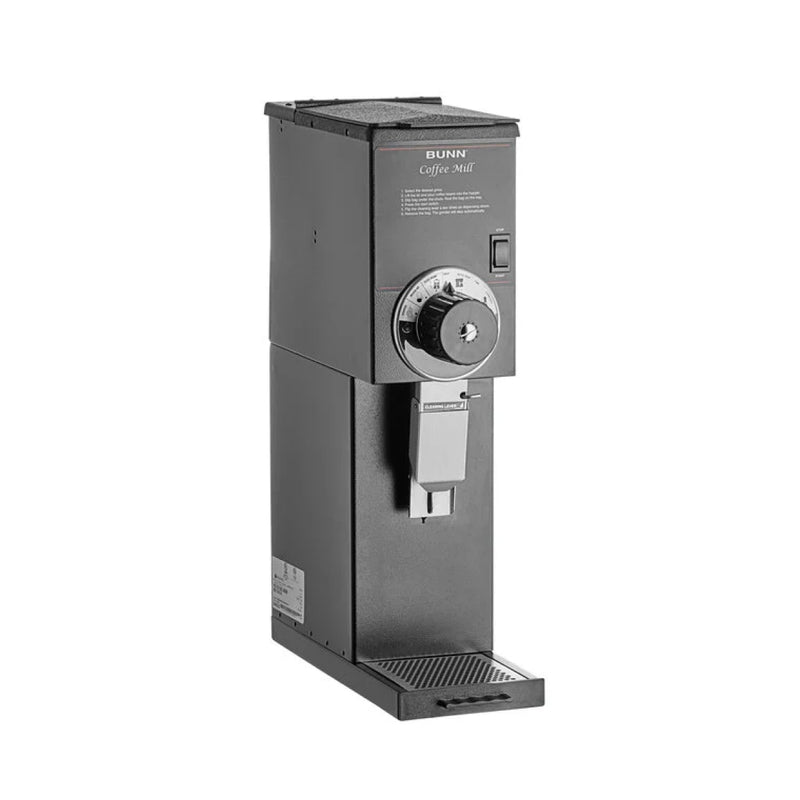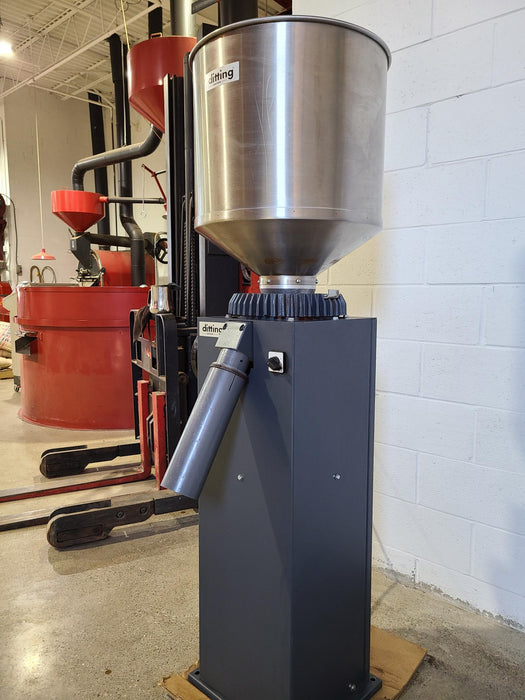Industrial Coffee Grinder: Important Qualities to Consider When Shopping
Industrial Coffee Grinder: Important Qualities to Consider When Shopping
Blog Article
Industrial Coffee Grinder Overview: Increase Effectiveness and High Quality
In the affordable landscape of coffee production, picking the best commercial coffee grinder plays an essential role in boosting both performance and product top quality. Understanding the subtleties of different grinder types and crucial features-- such as personalized work setups and robust building-- can substantially influence the final taste profile of the coffee.
Recognizing Mill Kinds
When picking an industrial coffee grinder, recognizing the numerous types available is vital for optimizing both taste removal and functional performance. The two primary types of grinders are blade grinders and burr mills.

Eventually, choosing the appropriate kind of grinder is important to keeping top quality and performance in coffee manufacturing, making it crucial for companies to spend in high-grade burr mills for optimum outcomes.
Key Functions to Take Into Consideration
Picking a commercial coffee grinder requires careful factor to consider of several vital functions that can dramatically affect both efficiency and the general coffee experience. Among the key elements to evaluate is the grinding mechanism. Burr mills are generally chosen over blade mills, as they offer a consistent work size, which is crucial for optimum removal and flavor.
One more important feature is the mill's capacity. Depending on the volume of coffee you need to procedure, pick a model that can manage your needs without compromising rate or high quality. Additionally, take into consideration the work settings supplied. A flexible mill with several settings permits you to customize the work size to various brewing techniques, improving the coffee's flavor profile.
Evaluate the grinder's sound level, specifically in a busy coffee shop or manufacturing environment, where too much sound can be disruptive. Spending in a grinder that stabilizes these attributes can substantially enhance both operational performance and the high quality of the coffee served.
Optimizing Grinding Refine
To accomplish the most effective cause coffee preparation, maximizing the grinding process is necessary. The work size substantially influences removal, flavor, and overall top quality of the made coffee. Various brewing methods need particular work sizes; for example, coffee demands a great grind, while French press necessitates a crude appearance. Understanding the relationship in between grind size and brewing technique is the primary step in optimization.


In addition, keeping track of the grinding rate can enhance the process. Slower grinding usually creates less heat, protecting delicate tastes and aromas. Conversely, much faster grinding might create excessive heat, negatively influencing the coffee's top quality.
Upkeep and Treatment Tips
Proper upkeep and care of commercial coffee grinders are essential for ensuring optimum efficiency and long life. Routine cleaning is the structure of maintenance; residue accumulation can affect taste and grinding efficiency. It is advisable to clean the grinder after each use, cleaning down the outside and getting rid of any kind of coffee grounds from the burrs.
Additionally, examine the grinding burrs for wear and tear. Dull burrs can jeopardize work consistency, so they should be changed as essential. Industrial Coffee Grinder. Occasionally calibrating the grinder is likewise crucial, as this preserves the desired work size for various brewing approaches
Lubrication of relocating components must be carried out according to the supplier's specifications, as this lowers friction and prolongs the life of the devices. It is important to make use of food-grade lubes to guarantee security and conformity with health laws.
Last but not least, maintain the grinder in a dry and stable atmosphere to protect against corrosion and rust. By sticking to these maintenance and treatment suggestions, operators can enhance the effectiveness of their industrial coffee mills while making sure high-quality outcome and prolonged functional life.
Return on Investment Analysis
Reviewing the return on financial investment (ROI) for commercial coffee mills is essential for organizations looking for to enhance their coffee production abilities. A detailed ROI analysis helps figure out the monetary stability of investing in top notch grinders, permitting services to weigh the initial prices versus potential gains.
Examine the acquisition price of the grinder, consisting of installment and any required alterations to existing facilities. High-performance mills frequently lead to reduced grinding time and enhanced throughput, which can dramatically improve performance.
In addition, consider the influence on product top quality. Industrial Coffee Grinder. Superior mills produce a more constant work dimension, which can enhance taste profiles and client complete satisfaction, eventually driving sales. By raising the quality of the final product, services Check Out Your URL can justify higher prices, leading to boosted earnings
Verdict
In recap, a commercial coffee mill plays a critical role in enhancing both efficiency read this article and product high quality within coffee production. By picking premium burr grinders equipped with crucial attributes such as flexible work settings and sturdy construction, services can guarantee optimal flavor removal. Regular upkeep is essential for sustaining grinder efficiency and making best use of consumer fulfillment. Eventually, the strategic investment in a trustworthy grinder adds significantly to enhanced earnings and competition in the coffee sector.
In the competitive landscape of coffee manufacturing, selecting the right commercial coffee grinder plays a critical duty in boosting both performance and product top quality. The 2 main types of mills are blade mills and burr mills. Within the burr mill group, there are flat burr mills and conical burr mills, each with its benefits. Burr mills are usually favored over blade mills, as they supply a consistent grind size, which is vital for optimal extraction and taste.
In recap, an industrial coffee grinder plays a critical function in boosting both effectiveness and item top quality within coffee production.
Report this page